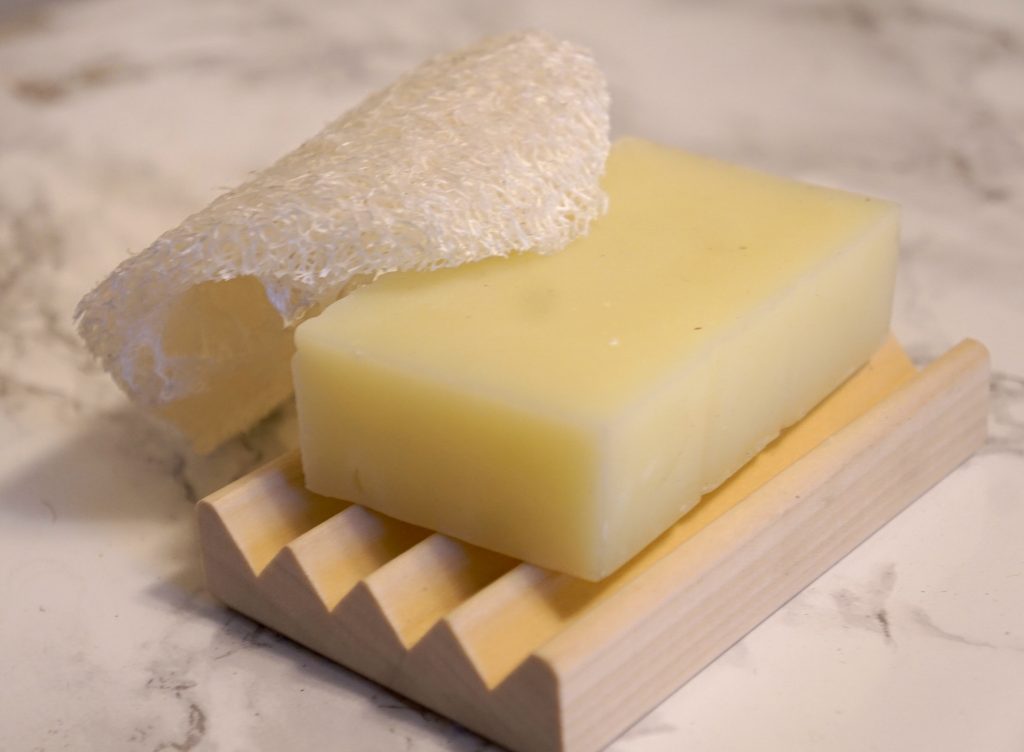
Sustainability refers to nature’s ability to replenish and maintain itself with no waste in the process. Humans have disregarded this concept through overconsumption and wasteful habits, resulting in too much plastic, rampant greenhouse gas emissions and a rapidly warming earth. If we were all to think proactively about what and how we buy, we could effectively reduce consumption — a major win for environmental issues. But, where do you start? It’s harder than you may think, but here are some tips to get you started on how to live sustainably.
Compost
Composting is one of the most effective ways to reduce your food waste. When placed in your garbage, food is brought to a landfill and buried beneath the weight of trash. Because of the lack of oxygen reaching the food scraps as they rot, they produce methane, a harmful greenhouse gas. This is easily avoidable by composting and there are many different options to choose from. Check those out in our guide to composting.
Recycling
Plastic, glass, metal and paper should be avoided as much as possible. If you are to use those, be sure to recycle or reuse them properly. Paper can often go into your compost bin while containers can be used as a pencil holder, coin collector and more. If you can’t use the container, be sure to clean it thoroughly before you place it in your recycling bin.
Clothing
Thrifting is a great way to reduce your consumption. The Salvation Army and Goodwill are among student favorites for cheap options on well-kept clothing and shoes. Donating clothes is a great option for getting rid of items you don’t want anymore. As for that perfect T-shirt that ripped, buy a needle and some thread and learn to hold on to your beloved clothing — no matter how old it gets.
Bath
Countless shampoo, conditioner and liquid soap containers are brought into landfills because they are often improperly disposed of. Moreover, sometimes you can’t pop open that pesky top to clean the container out. How do you avoid all of this? Bars. You can purchase shampoo, conditioner and body bars at many Etsy and local shops. The Better Soap Company of Assonet, MA sells fair trade and vegan handmade soap that comes in zero-waste packaging. By ordering through Etsy, all purchases are made with carbon-neutral shipping. As for shaving, Albatross’ plastic-free safety razor is a great buy and will leave you not having to purchase another razor for years on end. Plus, its Blade Take Back Program allows you to ship your old and rusty blades back to them to be upcycled in the making of reusable cutlery.
Basic cleaning
Cleaning products are filled with plastic and the chemicals used can sometimes make your head feel woozy. To avoid this, make your own all-purpose cleaner with one-part distilled white vinegar and one-part water — not to be used on granite or marble surfaces. If the vinegar smell is too much, substitute it with vodka and add some fragrant essential oils. Use rags that you can wash to ditch the overuse of paper towels.
Washing dishes and clothing
Common sponges tend to hold microplastics that seep into water. Dishwashing soap is usually sold in a plastic bottle. Ditch the plastic and buy some soap blocks for your dishes to be used with a natural loofah sponge or wooden brush with bristles. These can be found at Target or a variety of Etsy shops. As for your laundry detergent, try and make your own! You can do so by placing one cup of baking soda in the oven at 475 degrees Fahrenheit for an hour to make washing soda. The washing soda can be mixed with one grated bar of Castile soap to make a perfect, plastic-free laundry detergent.
Buying in bulk with your own bags and containers
Buying in bulk is an excellent avenue to reduce the consumption of plastic and save money in the long run for food. Wegmans offers a variety of bulk ranging from your favorite nuts to tasty chocolate snacks. Wegmans does not widely offer to take the tare weight, or the weight of an empty container, off the price. Because of this, bring a cloth bag to put your bulk foods in to avoid the offered plastic bags. You can do the same for Wegmans’ baked goods such as bagels, buns and donuts, which do not require any weight for purchase. If you’re up to the two-hour, to-and-from drive every month or so to Syracuse, New York, the Green Planet Grocery and the Syracuse Cooperative Market sell many items such as grains, spices and coffee. Be sure to check out the differences between the two stores before your visit and stock up! Both locations accept any type of container and subtract the tare weight.
Other food purchases
For eggs, buy them in a carton and give the carton to a local farmer when you’re done. Wegmans sells milk in a glass bottle from an organic dairy farm, Pittsford Farms Dairy & Bakery, and you can return the glass bottle when emptied at the customer service desk to receive your bottle deposit back. Almost every grocery store will allow you to place your deli meat and cheeses in your own container after weighing it. For to-go dining, always bring a reusable water cup, miscellaneous drink cup, food container, reusable cutlery and a bamboo or metal straw with you.
Vehicle emissions
If you have a car, consider taking public transportation sometimes to save a little green in your pocket and to put it back into the air. The Off Campus College Transport offers rides to campus, Wegmans, the Oakdale Mall, Downtown Binghamton and more. Students also have free access to Broome County Transit.


